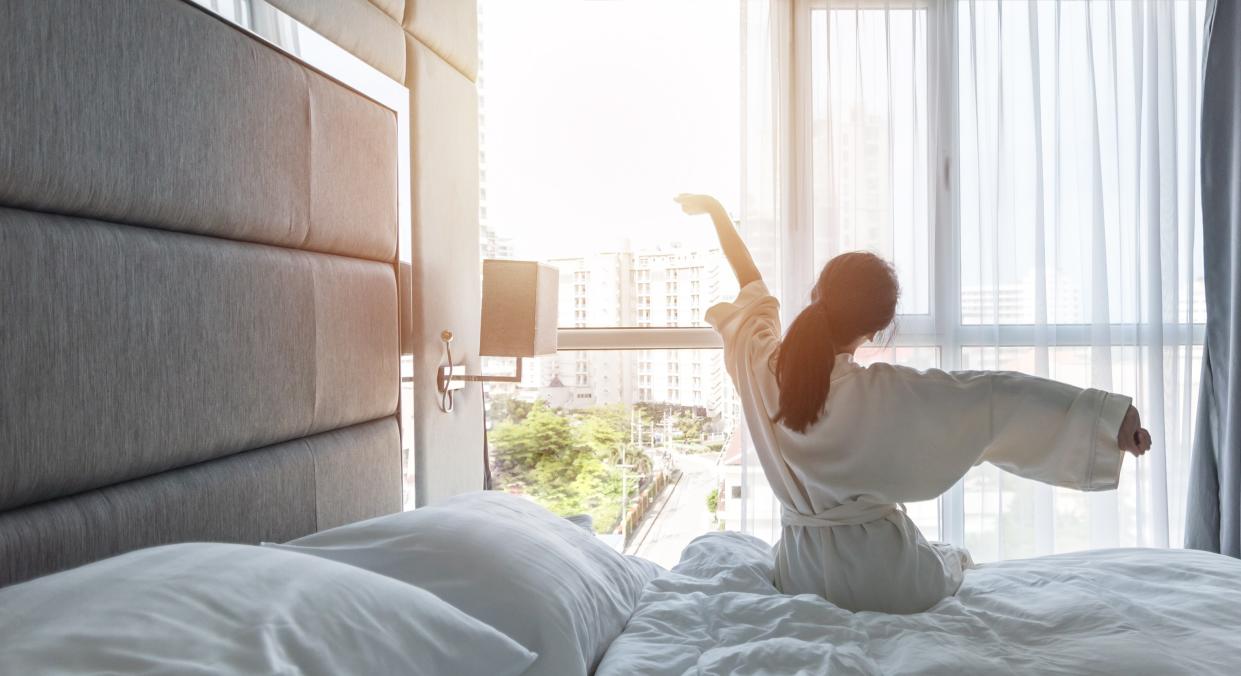People have seen their sleep improve during the coronavirus lockdown, say scientists

The coronavirus pandemic may be something of a living nightmare for many - but more British people have been sleeping better than ever.
A new study has found that three in five people, or 62%, are getting just as much shut-eye, if not more, than before the lockdown began in the UK on March 23rd.
Researchers at King’s College London - who surveyed more than 2,300 people in collaboration with polling company Ipsos Mori - have discovered that school closures and working from home have inadvertently helped increasing numbers get a good night’s kip.
However, on the flip-side, the economic impact of the outbreak has meant just over a third of participants have been kept up at night by financial worries.
Latest coronavirus news, updates and advice
Live: Follow all the latest updates from the UK and around the world
Fact-checker: The number of COVID-19 cases in your local area
6 charts and maps that explain how coronavirus is spreading
According to Professor Bobby Duffy, director of the Policy Institute at King’s College, this group are experiencing less, and more restless, sleep.
Further research, conducted by scientists at Oxford University, has shown that teenagers have been getting up later, with one in three eleven to 16-year-olds indulging in generous lie-ins.
Russell Foster, a professor and director of the Sleep and Circadian Neuroscience Institute at Oxford told The Sunday Times that most workers in the UK “do not get enough sleep in our busy 24/7 society, which means most of us are usually sleep-deprived.
“It is interesting that may now be being reversed.”
Read more: Best sleep positions for common issues, from snoring to back pain
It comes as it was revealed that the position you fall asleep in could actually end up causing you health problems, ranging from aches and pains to sleep apnoea.
Oliver Elliot, expert at Nectar Sleep, explained: “Everyone sleeps differently but if you subconsciously fall into the incorrect sleeping position, neck, back and other muscle problems may become exacerbated.”
He continued: “It's important to recognise your body's needs and try to adapt your physical positioning when trying to drift off to sleep, being mindful of tension in your body.”
For example, ‘the log roller’ can ease pack and neck pain, and involves resting on your side with legs extended straight and arms by your side.
Read more: These affordable black-out blinds might be designed for children, but they're ideal for all ages
You can also treat yourself to a set of black-out blinds from Amazon costing £20 that will ward off light pollution if you live in an urban area.
They have received almost 4,500 reviews on the site, with many shoppers crediting them with transforming their sleep patterns - as well as those of their families.
One relieved parent commented: “I bought this for my toddlers' bedroom; I didn't want to make holes in the walls of my apartment hanging curtain rods and liked the idea that this sticks directly to the glass, leaving very little space for the light to leak through.
“We also travel/sleep away from home often and thought it would be helpful to be able to take it with me. It went up easily and blocked out the light nearly completely.”



